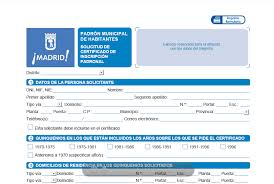A guide for EU, EEA and Swiss citizens – and their family members – coming to live, work or study in Spain.
EU, EEA and Swiss citizens have the right to live and work in Spain without a visa or permit, but if you’re staying longer than three months, you will have to register with the authorities and obtain a residence certificate, which requires you to prove you can support yourself financially and have healthcare insurance.
EU/EEA/Swiss nationals moving to Spain
Within three months of your arrival in Spain, you have to go in person to a Foreigners’ Office (Oficina de Extranjero) or local police station to register and be added to the Central Register of Foreign Nationals.
You will need to have a valid passport or ID document and – as of July 2012 – be able to show documentation to prove that you can support yourself (and any dependants), and may also be asked to show evidence that you have private or public healthcare insurance.
This documentation will vary according to your own circumstances, but can include:
- a declaration or certificate of employment, or evidence of self-employment (such as registration on the Mercantile Registry – Registro Mercantil);
- evidence of healthcare insurance (or European Health Insurance Card if valid for the duration of the stay);
- proof of sufficient financial resources (through income, assets, etc);
- proof of enrolment at an educational institution.
If everything is in order, you will be given a residence certificate (Certificado de registro como residente comunitario), which will include your name, address, nationality and your Foreigner’s Identity Number (NIE). This number is essential for all financial and administrative matters in Spain.
You must inform the authorities of any change of address or personal circumstances, such as marriage or divorce. Carry the certificate, along with your passport or national ID document, at all times.
Family members of EU/EEA/Swiss citizens
Family members – legally registered partners, spouses and dependants – who are EU/EEA/Swiss citizens must apply for the same registration as detailed above.
Those family members who are not from the EU/EEA or Switzerland have the same right to live to Spain, but they may need to apply for a visa from the Spanish embassy or consulate in their home country to enter Spain.
Within three months of arrival, they must register in person at the Foreigner’s Office in order to be issued with a Residence Card for family members of EU citizens (Tarjeta de Residencia de Familiar de Cuidadano de la Unión).
Non-EU/EEA/Swiss family members will need to show:
- a valid passport,
- completed and signed application form,
- proof of relationship with the EU citizen (birth, marriage, civil partnership certificates),
- ID of the EU citizen, and
- colour passport photos.
The residence card will be valid for five years, after which it has to be renewed.
Working in Spain
If you will be working in Spain you should also register with the Spanish Social Security authorities, the General Social Security Fund (Dirección General de la Tesorería General de la Seguridad Social – TGSS). If you are an employee your employer will do this for you; if you are self-employed it is your responsibility.
If you are from Croatia you’ll need a work permit to work in Spain up until 30 June 2020.
.
Mandatory registration on the padrón (Town hall registration)
The padrón is a list of all the people living in the town and it’s obligatory for everyone, including EU/EEA/Swiss citizens, to be registered on it (the term empadronarse is the act of registering on it).
While it’s a form of census registration and helps the town’s provision for schools and health centres, being on it has other benefits, including access to certain income-related benefits and social care, possible reductions in community charges and inheritance tax as well as the right to vote in local and European elections.
Go to the padrón office at the town hall shortly after your arrival, where you will need to show:
- your passport or official ID,
- your NIE or residence certificate or card,
- a recent utility bill in your name, and
- a copy of your rental agreement for where you live or your house deeds.
- You may be issued with a Certificado de Empadronamientothen and there or have to return to collect it.
Source: Expatica

